Ebola crisis: A village fights back in Sierra Leone
- Published
- comments
One community in a rural area of Sierra Leone has built its own Ebola treatment centre, the BBC's Andrew Harding reports
It is nothing much to look at - a derelict building in rural Sierra Leone surrounded by a couple of tents and a meandering maze of stick and plastic fences.
But this enclosure in a village called Gbantama, about four hours drive north of the capital, Freetown, is being hailed as a missing link in the huge, chaotic and often much too slow fight against Ebola.
"Take off your ear-rings. No watches, no rings," said an instructor inside one of the sweltering tents, as he trained a group of local villagers - already sweating in their protective clothing - to treat a new arrival with suspected Ebola.
Outside the tent, it seemed like half the village was busy working at the site - local electricians, labourers and builders installing a water system, digging a fire pit, and putting up lighting in the long-derelict building at the heart of the camp, a former school that had once served as a retraining centre for the armed groups disbanded at the end of Sierra Leone's civil war.
"It's meant to be basic," said Daniel Kertesz, the World Health Organization's country representative.
"The centre has been constructed to bring the fight against Ebola into the community. Community involvement is the key," he said.
"It gets rid of the issue of stigma and when the community helps to own it, they can help to resolve it."
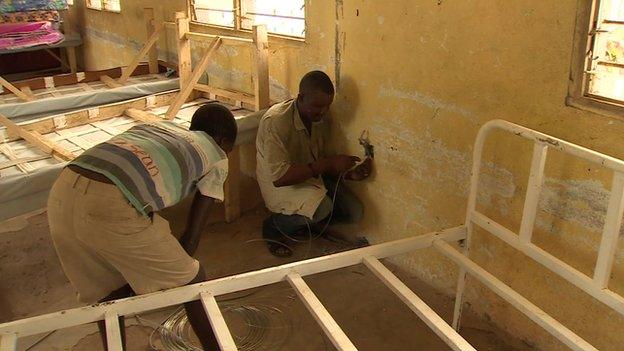
The village is building its own Ebola centre at the site of a former retraining centre for former militia fighters
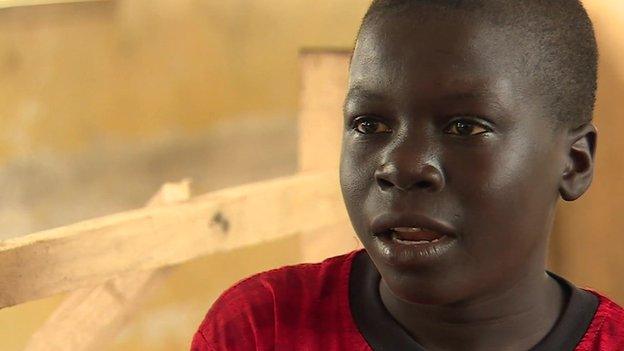
Ebola survivor Amara Sessey lost his family but gives advice to other villagers about how to avoid the virus
The local paramount chief Baibureh Sallu Lugbu seemed impressed.
"We're not going to lose this war. I think now the awareness is there," he said.
"The denials - that it's not Ebola, it's witchcraft - have stopped.

Read Andrew Harding's other reports from Sierra Leone:
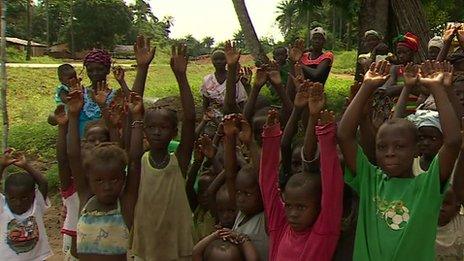

"People were afraid when their relatives were taken away to Port Loko and other places and they feel they won't come back.
"But now the centre is here they will come for treatment. They will never be afraid. This is why they spend their time and energy to build this place.
"They have a sense of ownership and are still working to see it succeed."
'Dignified care'
There are risks involved.
There is still a desperate shortage of trained staff and it is possible the centre might help spread the virus rather than contain it.
But various foreign aid organisations are supporting the project, and the plan is to roll out another 20 similar facilities across this hard-hit district in the coming weeks.
"This area is under a lot of pressure," said Dualta Roughneen, Plan International response manager.
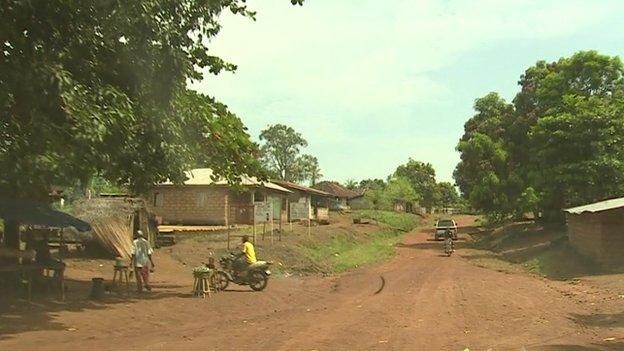
Gbantama village is four hours drive north of Freetown
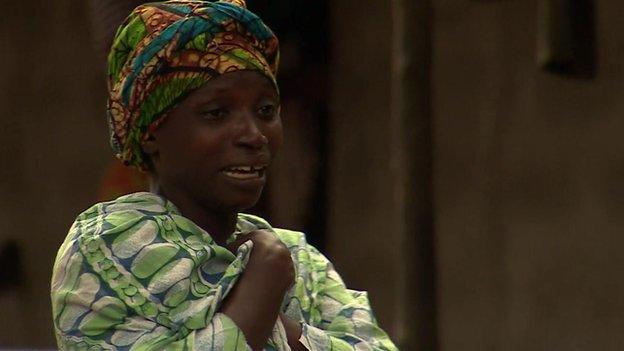
A woman mourns the loss of Abu Bangura, a father of nine, who died of Ebola in Gbantama
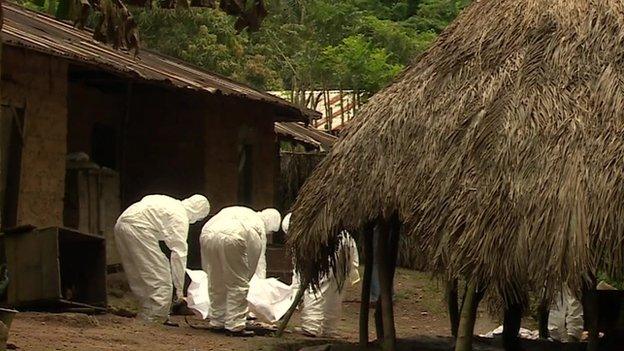
The burial team look like astronauts in their white protective suits
"There are no treatment centres on line. The holding centres are filling up very quickly and overflowing.
"There's a need to put something in place - an interim measure - to get people out of their houses and to avoid them infecting their families and neighbours, and to have them in a place where they can get safe and dignified care."
Amara Sessey, aged "10 or 12" as he put it with a grin, stood watching the health workers being trained in one of the tents.
He has just recovered from the virus - and is consequently immune to it now - but lost his parents, four younger brothers, and his two-year-old sister.
The new facility seemed to give him a strong sense of purpose, as he walked around, confidently advising some of the adult builders how to avoid catching Ebola.
But the scale of the challenge still confronting Gbantama was abruptly brought into focus a few minutes later, when a burial team arrived at Amara's next-door neighbour's house.
Overnight, the virus had killed Abu Bangura, 39, a father of nine.
The team - looking like astronauts in their white protective suits - took perhaps two minutes to zip closed the body bag and carry it on a stretcher to an unmarked grave in the woods a few yards behind Amara's empty home.
Across the muddy street, two other neighbours have now developed fevers.
Ebola deaths
Figures up to 13 January 2016
11,315
Deaths - probable, confirmed and suspected
(Includes one in the US and six in Mali)
-
4,809 Liberia
-
3,955 Sierra Leone
-
2,536 Guinea
-
8 Nigeria